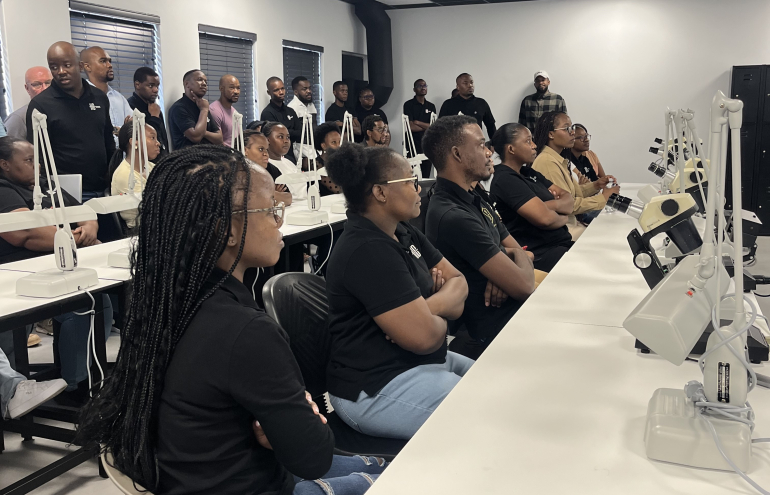A new case study examining an innovative business model in Botswana that is aiming to disrupt the traditionally obscure diamond supply chain has been released by the Australian Human Rights Institute at UNSW Sydney.
The study is the second to be published by the research team at the Institute and its partners at the Geneva Center for Business and Human Rights as part of a project examining transformational business practices in global supply chains.
HB Antwerp, and its subsidiary HB Botswana, employ a business model that is focused on providing radical transparency of the diamond production process with reliance on technological innovations and knowledge transfer to build local capacity. With its innovative approach, the company aims to ‘catalyse equity for natural resources’, to meet the promise of the 2030 Agenda for Sustainable Development.
Employees of HB Botswana
Compared to other sectors, many luxury goods companies are laggards in adopting substantial sustainability strategies for sourcing precious stones and metals. Many explain that their consumers are at best superficially interested in their sustainability engagement, and they therefore cannot monetise a more expansive restructuring of their supply chains.
The study looks at the need to educate consumers alongside growing and mainstreaming innovative and adaptive business models, such as those at HB.
Read the full case study here.
